Food for Thoughts
If you are ever at a loss for conversation, here are a few ideas.
- Provide some insight based on a blog that you have read about the possibility of getting cancer from different foods.
- Show some photos of your garden at home where you grow your own veggies because you don’t trust what’s at the grocery store.
- Talk about what you saw on TV, where celebrities explain how fruits and vegetables are doused with poisonous chemicals.
- Tell the story of going to the farmers market, where you got to talk to the farmer who grew your produce, therefore, you know it is safe and healthy.
- Give examples of how your kid got sick by eating meat with antibiotics.
- Encourage your friends to watch the latest documentary about our food system so they can stay away from brands that want to make money.
- Spout off study after study and quote after quote regardless of the source to determine what is safe and what isn’t.
Food Drama Insanity
There is no wonder why people have so many food issues – they’re scared of food, they’re addicted to food, they spend all of their money on food, and they spend all of their time and energy thinking about food.
The entire topic of food, food production, and food consumption has become such a spectacle. From “Drink The RoundUp If It’s So Safe” and “Eat Kale and Quinoa As Much As You Can” to “Sugar Is The Cause of Obesity” and “Only Buy Produce At Farmers Markets“. Then there’s the classic arguments of “Big Ag & Big Food” and “Right to Know/Labeling”. And let’s not forget the issues like the dangers, or perceived dangers of GMO’s & antibiotics in animals.
We Grow Food We Eat
At Black Gold Farms, we grow, pack and ship potatoes – Many of these potatoes are then used for potato chips. We also sell them to grocery stores to be used at home, or used in restaurants and cafeterias. We also grow sweet potatoes that are used for fries or cooked up in the microwave. Sometimes our potatoes are used in canned soups, prepared meals, and everything in between.
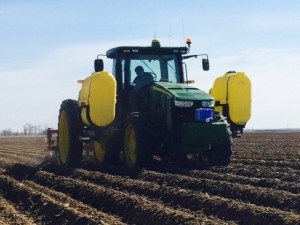
Planting is complete in Texas and Florida. We are currently planting in several other locations. The seed we use is either grown on our farm in Forest River, or it is sourced from other Certified Seed Growers throughout the United States. Seed is very susceptible to disease so we typically treat it to ensure it’s vitality. The soil also has a very high likelihood of damaging pests that will ruin seed, so we treat the soil as well to combat these issues.
Our main concern at all times is safety. The safety of our people, and the safety of our customers is of utmost importance. However, we also have to remember that we are a business, and we need to be sure we are profitable. If we’re not profitable, we can’t pay our people a reasonable wage and provide bonuses, we can’t give back to our communities, we can’t spend money on research to be better farmers, and we can’t grow.
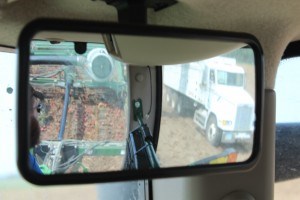
We scout daily for weed pressure, moisture levels, insect damage, diseases, and the many other issues that may arise. If we find anything that might compromise the crop before harvest, we have to deal with it.
The Food Business
Will we ever grow GMO potatoes? Probably. Will we ever grow organic potatoes? Perhaps eventually. Will we ever apologize for using science and technology in order to care for the Earth and the food we produce? Never. Will we drink a glass of 2,4-D to prove that what we do is safe? No. We’re not in the circus business, we’re in the food business. But what we will do, is eat and feed our families anything that we produce.
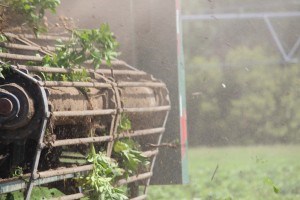
We start harvest in Texas in April, and keep going until we’re done in the Red River Vally in October. This model decreases food miles on the road, and increase the quality of product.
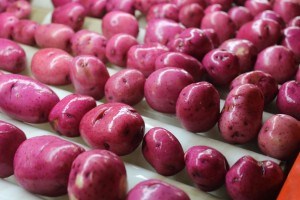
After months of planning for the crop, weeks taking care of the crop, and days harvesting the crop, we pack it up and send it off for consumption.
The food supply in the US is safe, healthy, and the most abundant in the world. Not all countries can say that. There are issues, many issues that need to be solved, no doubt. We also understand, that we have the obligation to work on being better. We also have the obligation to support others who are working toward that same goal. We refuse to be a part of discussions that causes fear and drama. We are, however, happy to lead the discussion about food in a way to educate, excite, create, expand, and provide to those who eat.
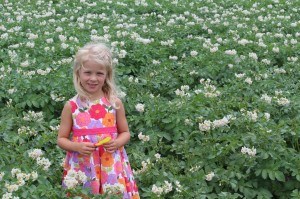
In the field or on the plate, we know that we’ve done all we can to provide a safe product in a safe environment. Without hesitation, our families are a part of the entire process.


Share